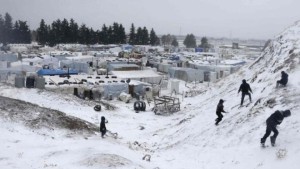WASHINGTON, AP/UNB, July 21 — The U.S. government has imposed trade sanctions on 11 companies it says are implicated in human rights abuses in China’s Muslim northwestern region of Xinjiang. Monday’s announcement adds to U.S. pressure on Beijing over Xinjiang, where the ruling Communist Party is accused of mass detentions, forced labour and other abuses against Muslim minorities.
Xinjiang is among a series of conflicts including human rights, trade and technology that have caused U.S.-Chinese relations to plunge to their lowest level in decades.
The Trump administration also has imposed sanctions on four Chinese officials over the accusations. Beijing responded by announcing unspecified penalties on four U.S. senators who are critics of its human rights record.
The Department of Commerce said the addition of the 11 companies to its Entity List will limit their access to U.S. goods and technology. It gave no details of what goods might be affected.
“This action will ensure that our goods and technologies are not used in the Chinese Communist Party’s despicable offensive against defenceless Muslim minority populations,” said Commerce Secretary Wilbur Ross in a statement.
China has detained an estimated 1 million or more members of its Muslim ethnic minority groups in internment camps.
The government describes them as vocational training facilities aimed at countering Muslim radicalism and separatist tendencies. It says those facilities have since been closed, a claim that is impossible to confirm given the restrictions on visits and reporting about the region.
Veterans of the camps and family members say those held are forced, often with the threat of violence, to denounce their religion, culture and language and swear loyalty to Communist Party leader and head of state Xi Jinping.
The companies cited Monday include clothing manufacturers and technology suppliers.
Three of the companies were identified by investigations by The Associated Press in 2018 and 2020 as being implicated in forced labour.
One company, Nanchang O-Film Tech, supplies screens and lenses to Apple, Samsung and other technology companies. AP reporters found employees from Xinjiang at its factory in the southern city of Nanchang weren’t allowed out unaccompanied and were required to attend political classes.




